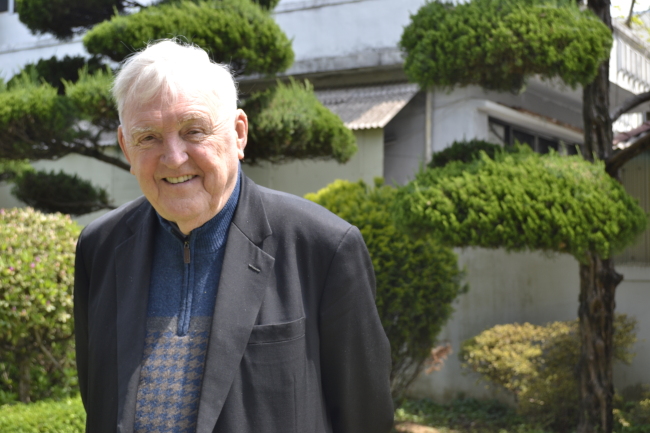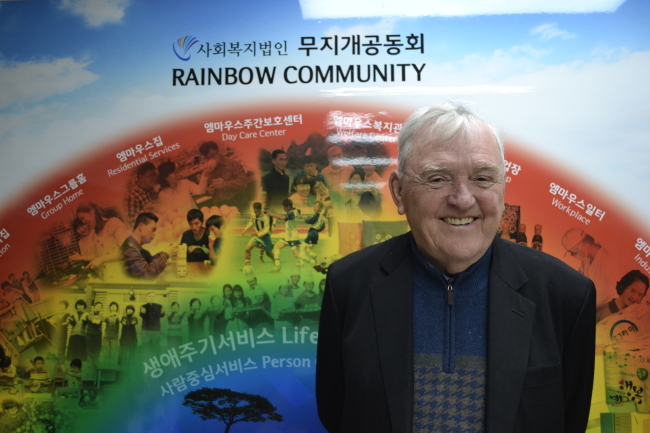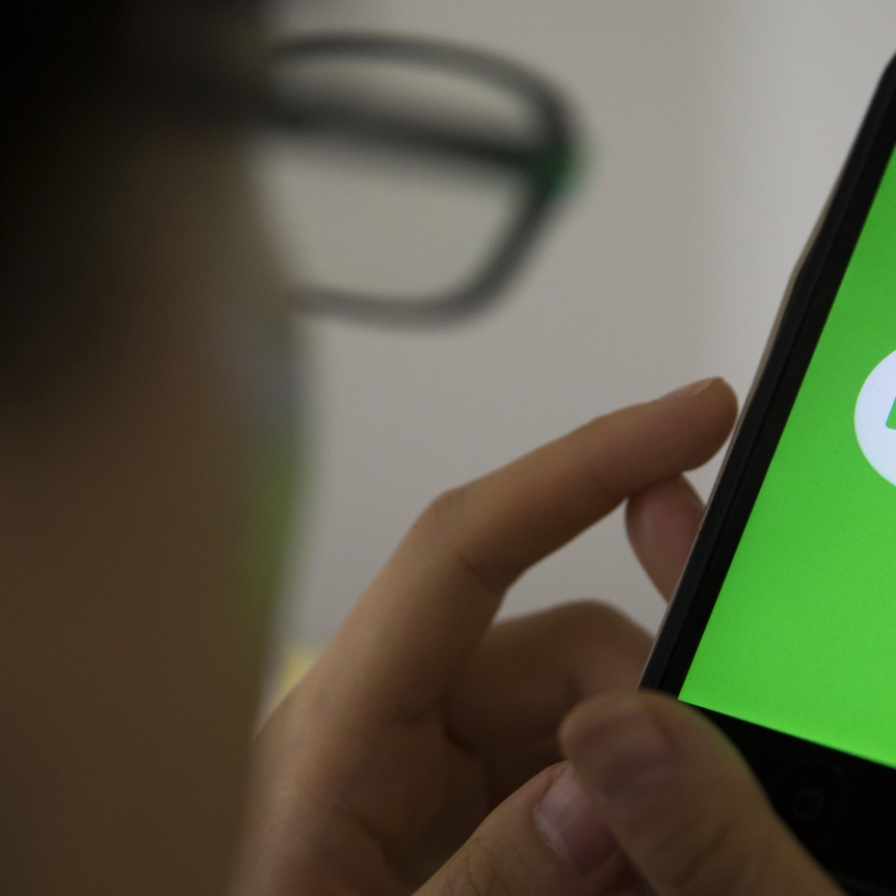“Will you forgive the society?”
The words written on the gravestone of a disabled girl, deceased at 19 years old, ring through the head of Irish priest Chun Noel in Gwangju day after day.
“When I first read the words on the gravestone, I felt the call that I should be doing something for the disabled,” said Chun, 83, the founder of a disabled support organization Rainbow Community.
The death of a person close to him with an intellectual disability in 1979 was a turning point for the Irish priest who flew to Korea on a mission decades ago.

Chun Noel (Lee Hyun-jeong/The Korea Herald)
Chun came to Seoul as a missionary in 1957 when the country was still suffering the wounds of the 1950-53 Korean War. He was only 24 years old and had just finished his missionary school Columban Fathers.
After six months of studying Korean in Seoul, the priest was dispatched to parishes in several cities in South Jeolla Province. While he was in Gwangju, he came cross a public rehabilitation center where 600 people in need lived, including orphans, the disabled and the elderly. Somehow, he said he felt the closest bond with the disabled.
“Unlike others, the disabled would only smile, not asking for anything. They were not able to express or fight for what they wanted,” he recalled.
It was at this rehabilitation center that he met the 19-year-old girl. He was the only one by her side when she died of pneumonia in 1979. The hospital offered a funeral service on condition of donating the body for research. But Chun refused.
“If she had not been treated with respect while she was living, I thought decent treatment was needed at least for the burial.”
Chun offered to cover all costs for her funeral service and gravestone, and it was then he decided to dedicate his life to helping the disabled.
“I didn’t know anything about the disabled. I needed to study on how I could help them in an effective way,” the priest said.
He traveled around different countries to see how they provided services for the disabled. It was during this time the United Nations designated the year 1981 as the International Year of Disabled Persons.
As the global attention turned toward the need to embrace and help those with disabilities, he was able to reach various opportunities to attend workshops abroad and draw the blueprints of his path.
“As I went to the seminars, I realized that a sense of guilt was prevalent over the way people have generally treated the disabled. They also shared the need of community-based services for the disabled, rather than the traditional way of isolating them from the nondisabled community,” he said.
Soon after returning to Korea in Gwangju, he started a “group home” service -- living with an acquaintance with an intellectual disability and a volunteer. From grocery shopping to working out, all activities were done together just as he would do with ordinary roommates.
The aim was simple: to incorporate the disabled into the community so that they could interact naturally with neighbors. It was the first group home in Korea as Koreans then tended to keep the disabled segregated or hidden.
“At first, the neighbors were astonished to see the intellectually disabled in their community, as they were not used to seeing them around,” he said. “But more and more, neighbors started to confess to me that they also had a disabled family member at home but never told anyone. They said they had never tried going out with them.”

Chun Noel (Lee Hyun-jeong/The Korea Herald)
Along with the tenuous start of running the group home service, he established “Rainbow Community” in the same year, which he continues to run to this day.
“Each color of the rainbow is unique. When the colors get together, it is beautiful. This is the same as the people. Each person is unique. When people get together, they can make the community more beautiful,” he explained.
With his dedication and unyielding efforts, Chun began to see changes, both in the perception and the system.
In 1985, Chun was able to receive financial support from his alma mater Columban Fathers and Germany’s largest Catholic welfare organization Caritas Germany. He used the subsidies to purchase land in the southwestern city and establish a welfare facility Emmaus Welfare Center in 1985, where about 100 intellectually disabled currently visit for daily activities.
Thanks to the welfare support regulation changes throughout the years, the organization has also become eligible to receive public subsidies for the group home operation since 1989. The government covers about 80 percent of the operation cost, he said.
The Rainbow Community gradually expanded its support to running eight sub-organizations from a disabled children center to special workplaces for those with intellectual disability.
Depending on the severity of the disability, the disabled are provided with self-support opportunities through the organization that gained its incorporated association status in 1993. They range from working at a factory that produces toilet paper and candles to working at a general factory. More than 200 disabled people are now working at various factories.
In the meantime, he also increased the number of group homes to 14, with each residence housing four disabled people. His initiative also inspired other similar operations, leading to about 600 group homes running nationwide.
In the recognition of his decades-long contribution to the welfare of the disabled, the Korean government allowed the “special naturalization” of Chun in February this year. The government has permitted special naturalization of foreigners who have made particular contributions to the country since 2012. He was the sixth foreigner granted Korean citizenship so far.
Chun said his mission for the disabled never ceases.
“I’m thinking of building a nursing home for the old disabled in the Rainbow Community once the average age of the residents here becomes older. The nursing home would be only for those aged 65 or older,” he said.
Chun said he has seen visible improvement of the public perception toward the disabled here, although prejudice is still something that imposes the greatest hurdle to the disabled.
“Even last week, two disabled folks and I tried to join a community badminton club. Although they had no physical problems, the club members refused to accept them,” he said.
“My Emmaus friends do not ask me whether I’m American, Korean or Irish. They do not ask me whether I’m a Buddhist, a Protestant or a Catholic. They have not been contaminated with the pollution of prejudice or bigotry. They ask me only one question; do you love me? Love is the fundamental question we all ask and seek.”
By Lee Hyun-jeong (rene@heraldcorp.com)







